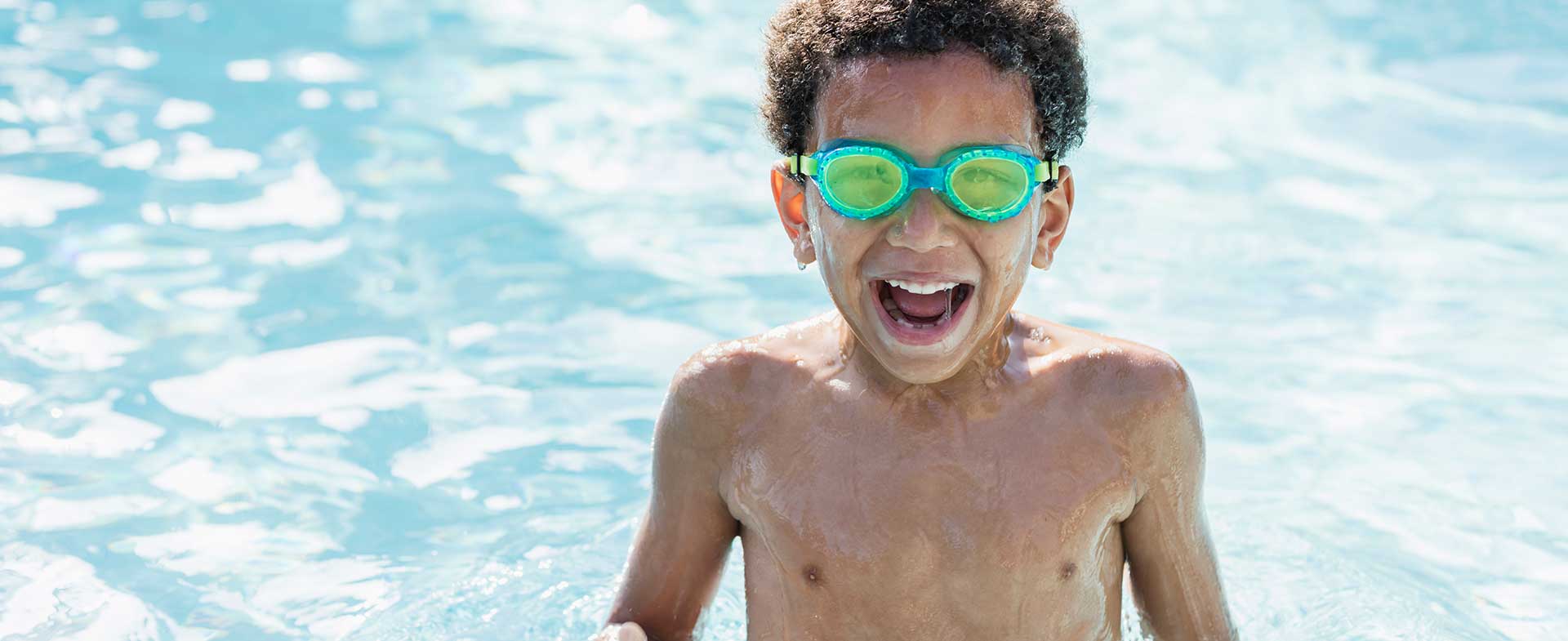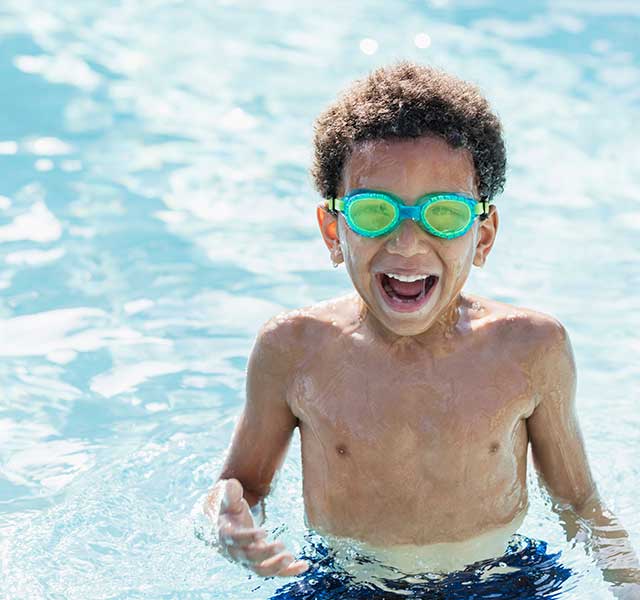With summer in full swing, water safety is critical. Community pools are bustling and many people are hitting the lake for a much-needed vacation. As fun as water sports and activities can be, it's important to remember that drowning is the second leading cause of injury and death for children ages 1 to 14.
"About 1,000 kids die from a drowning event every year in the U.S.," says Brittany Betham, M.D., an emergency medicine specialist at Henry Ford Health. "Then there are drowning incidents where a child doesn't die but there can be permanent neurological injury. Water-related activities can be very dangerous."
What Drowning Looks Like
Drowning is a silent event. Kids are trying so hard to breathe and get air that they can't scream or flail. Even more concerning, a child can drown in less than a minute. That's why every year news networks feature devastating stories about parents who have lost children to drowning. You never think it will happen to you — no one does — and yet, the threat is real.
"All kids are at risk, but the kids most likely to drown are between 1 and 4, and later in the teen years, from about 14 to 19," Dr. Betham says. "Kids between 1 and 4 are curious. They get close to the edge, look over and fall in. Teens feel invincible. They might experiment with drugs and alcohol or do risky things around water."
To add insult to injury, drownings among people of all ages are underreported. There's no standardized way for attributing drowning deaths. Instead, hospitals, first responders and health authorities assess each incident according to their own experience and the facts of the case.
How to Prevent Water-Related Injuries and Deaths
Summer can be an accident-prone time, particularly when water is involved. Some kids skin a knee or break a wrist after falling on wet pavement. Others dive into the water recklessly and suffer head injuries. The good news: most water-related injuries are preventable.
Whether your kids are just learning to swim or pros in the water, a refresher on water safety can keep everyone safe this summer:
- Learn to swim. Kids under age 1 are not developed enough to learn the swim skills necessary to get themselves out of water. "They don't have the head control," Dr. Betham says. "By age 4, most children are developed enough to participate in a swim class and learn basic swim skills." Swim classes aren't just about recreation and a love of water; they teach your child safety techniques to help if and when they get overwhelmed. Still, even with lessons, nothing replaces a parents’ watchful eye.
- Wear a life vest. Even if your child knows how to swim, it's important to make sure they wear a life vest around natural water bodies, such as lakes or the ocean. "Wearing a life vest is a must for anyone who is boating, regardless of their age or skill level," Dr. Betham says. Not all life vests are created equal. Make sure the one your child is wearing is U.S. Coast Guard-approved and that it fits snugly.
- Use the right barriers. The majority of drowning deaths happen in home pools or hot tubs — and most occur in pools owned by family or friends. Unfortunately, pool alarms and plastic covers aren't great at keeping children safe. The safest pools have a four-sided fence with self-closing and self-latching gates. If an adequate barrier isn't in place, or you're visiting a natural body of water, make sure you know where your children are at all times. Playing in or near the water? Make sure you're within arm's reach of your child.
- Practice lifesaving skills. Everyone over the age of 4 or 5 should know the basics of swimming (floating, moving through the water). And every adult who is caring for children should have a basic knowledge of cardiopulmonary resuscitation (CPR). "That way, if the worst happens, you have the skills needed to save that person's life," Dr. Betham says.
- Stay vigilant. Whether your child is in a bathtub, pool or splashing near the lake, it's important to supervise them at all times. Since drowning happens quickly and without warning, stay within arm’s reach and avoid distractions when your kids are near water. "No one is a good enough swimmer to be risk-free in the water, especially if you're near a natural body of water like an ocean, lake or river," Dr. Betham says.
Summer is a time of vacations, laughter and fun. But if you're a parent, and you're around water, you’re not on vacation. Sure, it's challenging to avoid distractions, but children require undivided attention when they're in or around water. Text messages, phone calls, cocktails, they can all wait — especially when a child's life is at risk.
To find a doctor or make an appointment at Henry Ford, visit henryford.com or call 1-800-436-7936.
Dr. Brittany Betham is an emergency medicine physician who sees patients in the ER at Henry Ford Hospital in Detroit and Henry Ford West Bloomfield Hospital.



